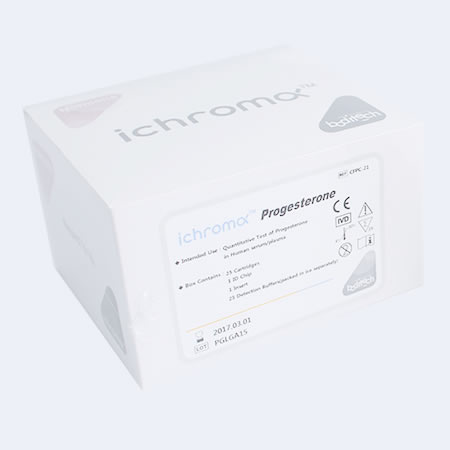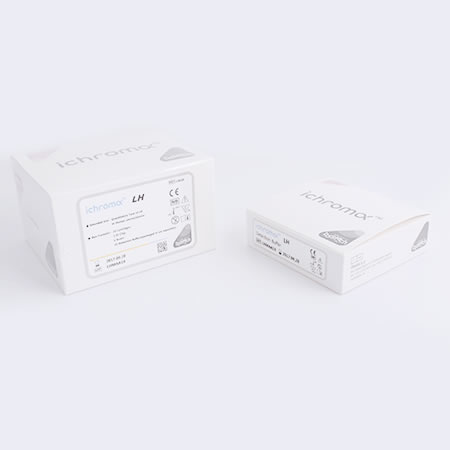| Detection Range | 1.4~40 ng/mL 4.45~127.2 nmol/mL |
| Sample Type | Serum, Plasma |
| CV | <10% |
| Normal Range | please consult product insert |
| Reaction Time | 15Min |
i-Chroma Progesterone
If the egg is fertilized, progesterone stimulates the growth of blood vessels that supply the lining of the womb (endometrium) and stimulates glands in the endometrium to secrete nutrients that nourish the early embryo.
Progesterone then prepares the tissue lining of the uterus to allow the fertilized egg to implant and helps to maintain the endometrium throughout pregnancy. During the early stages of pregnancy, progesterone is still produced by the corpus luteum and is essential for supporting the pregnancy and establishing the placenta.
Once the placenta is established, it then takes over progesterone production at around week 8-12 of pregnancy. During pregnancy, progesterone plays an important role in the development of the foetus; stimulates the growth of maternal breast tissue; prevents lactation; and strengthens the pelvic wall muscles in preparation for labour.
If progesterone is absent or levels are too low, irregular and heavy menstrual bleeding can occur. A drop in progesterone during pregnancy can result in a miscarriage and early labour.





